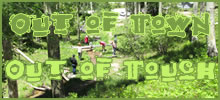To finish off what was going to be just one post and has now turned into three, here’s a third thought on reading.
I’ve seen many studies on how the level of education the parents have, particularly the mother, influences how well kids do in school and how much education they get. The higher a mom goes, the higher the kids will go. (My kids are going to be awesome!) Of course it’s a complicated process with a lot of factors influencing it, but it’s held true across many studies.
It seems there’s something that’s even more important though – the number of books in your home. Physical books. That you can hold and flip pages through and bend the spines back and dog ear the pages and press flowers in and buy way too many bookmarks for.
According to The Chronicle of Higher Education, they’ve even figured out a cut off point for how many books it takes to make a difference. The answer? 500.
Why would owning books matter? I would think it’s because people who own books read books (even if they do throw them from time to time). They are in your life. You read them to your kids. Your kids see you reading them. In addition, the more you read, the better writer you are, and as someone who’s been grading a lot of college papers lately, I really wish some of them would’ve read more as a child.
500 books can seem like a lot. I did a quick count of a few book shelves in our house, just shelves, and then some rough estimating. You’d need between 10 and 15 shelves of books. This of course depends on how thick your books are. I have about 40 books on one shelf and approaching 80 on another (picture books are generally really skinny and you can get a lot of them on a shelf). So on the four shelves we have in one room we probably have 230 books or so. So just one more book case and we’ve got it! And since we have more than one book case, I think we’re set.
Owning books can be an investment though. But it doesn’t have to be the huge investment most people think it is. The average book-buying household (so not counting those people who don’t bother to buy a book) spends $175 on 19 books per year. That’s roughly $9 per book, which really isn’t too bad. But at that rate it’s going to take you just over 20 years and over $4,000 to get the magic 500 books. After hearing that statistic in 2005 I decided to keep track and see how many I bought in a year and what I spent on them. I bought 24 books that year and spent only $109.55. At that rate it would still take 20 years to buy 500 books, but I’d be spending less than half on them. I got a lot of those books that year at school book fairs. You can get some great books for practically nothing with school book orders. And used book stores are always fun to check out as well.
Books were a part of every holiday growing up. We always got books for birthdays and Christmas. If books are a part of your life, you can reach that 500 in no time. You don’t have to have a dedicated library room in your home to make a difference (although I would love to have one some day).
More on reading in our family – Ooh Shemo: Reading

 I am an educator and PhD. I quilt, belly dance, run, read, and try to grow things. I am a Mormon. I am infertile. I am a daughter, sister, aunt, grand-daughter, friend, wife, and mom.
I am an educator and PhD. I quilt, belly dance, run, read, and try to grow things. I am a Mormon. I am infertile. I am a daughter, sister, aunt, grand-daughter, friend, wife, and mom.














Pingback, 16 March 2011 at 9:29 am
A book to throw | Random Giggles